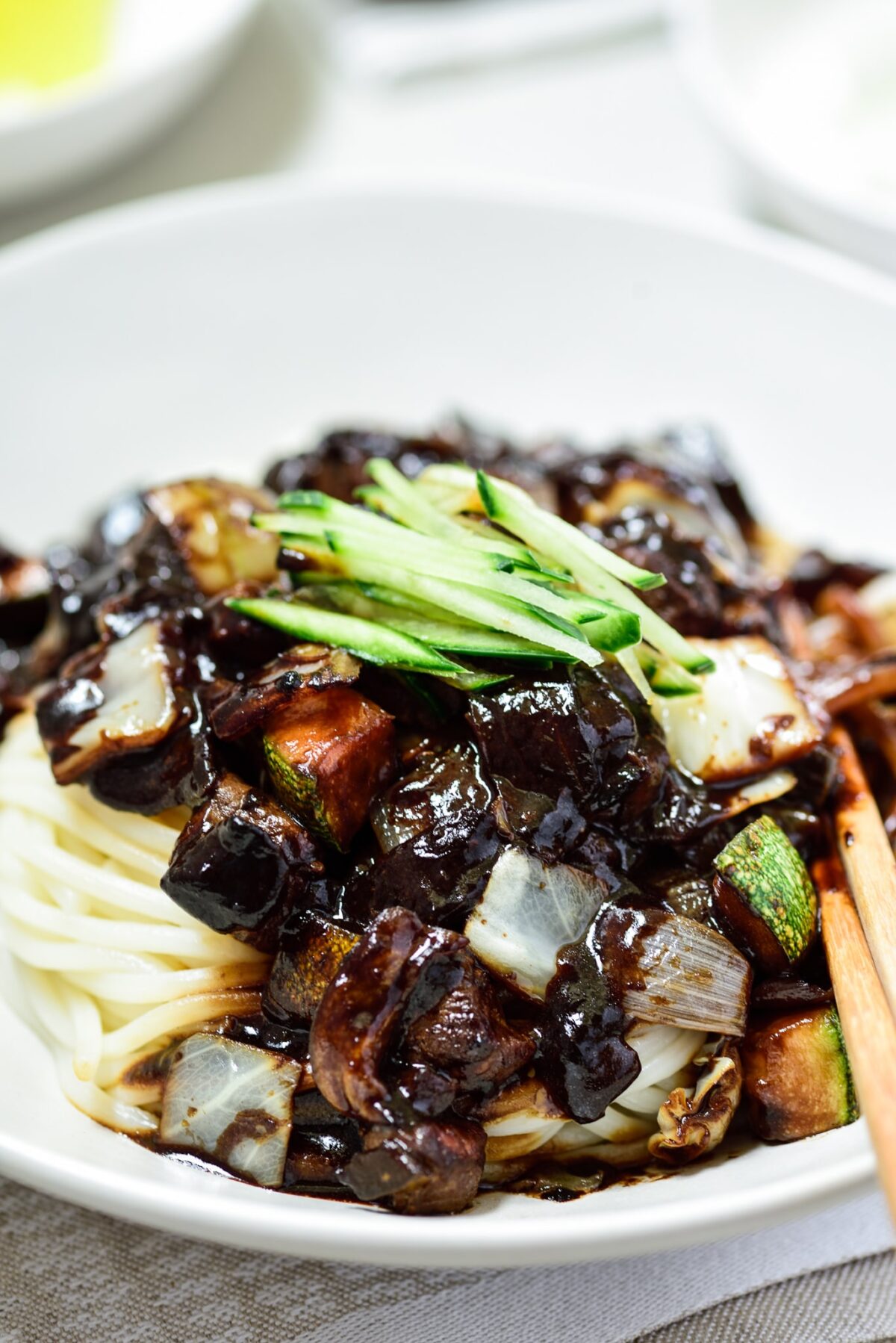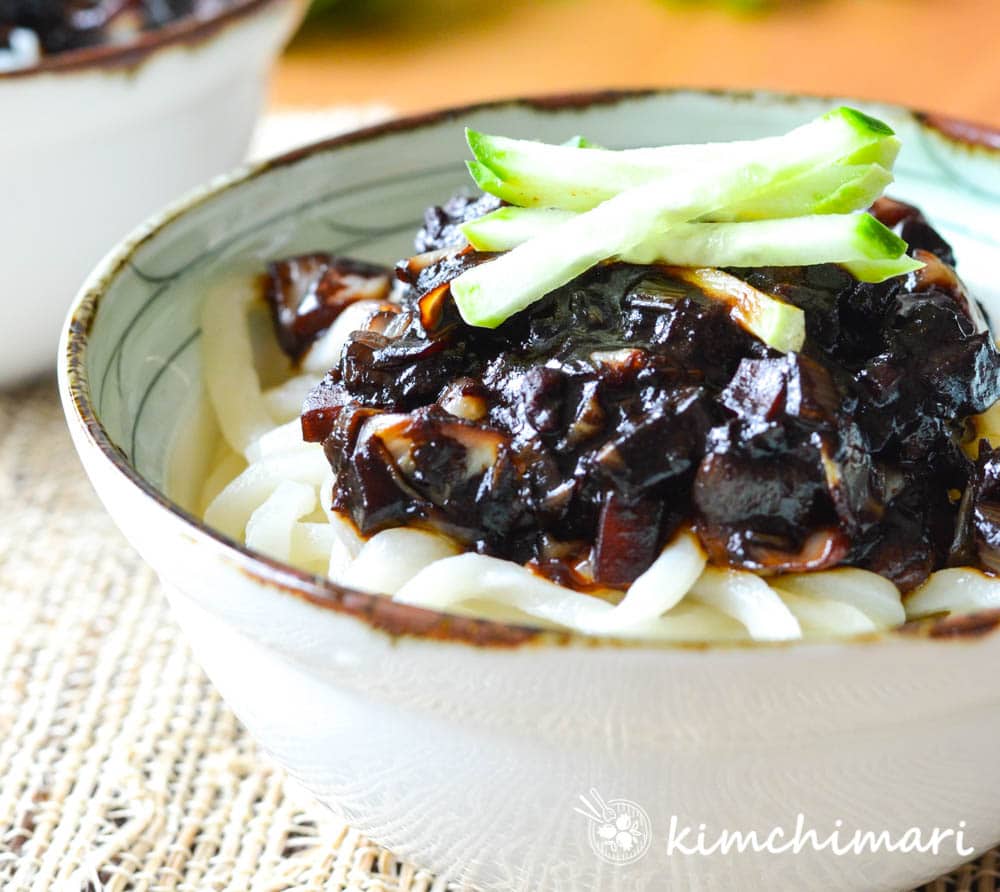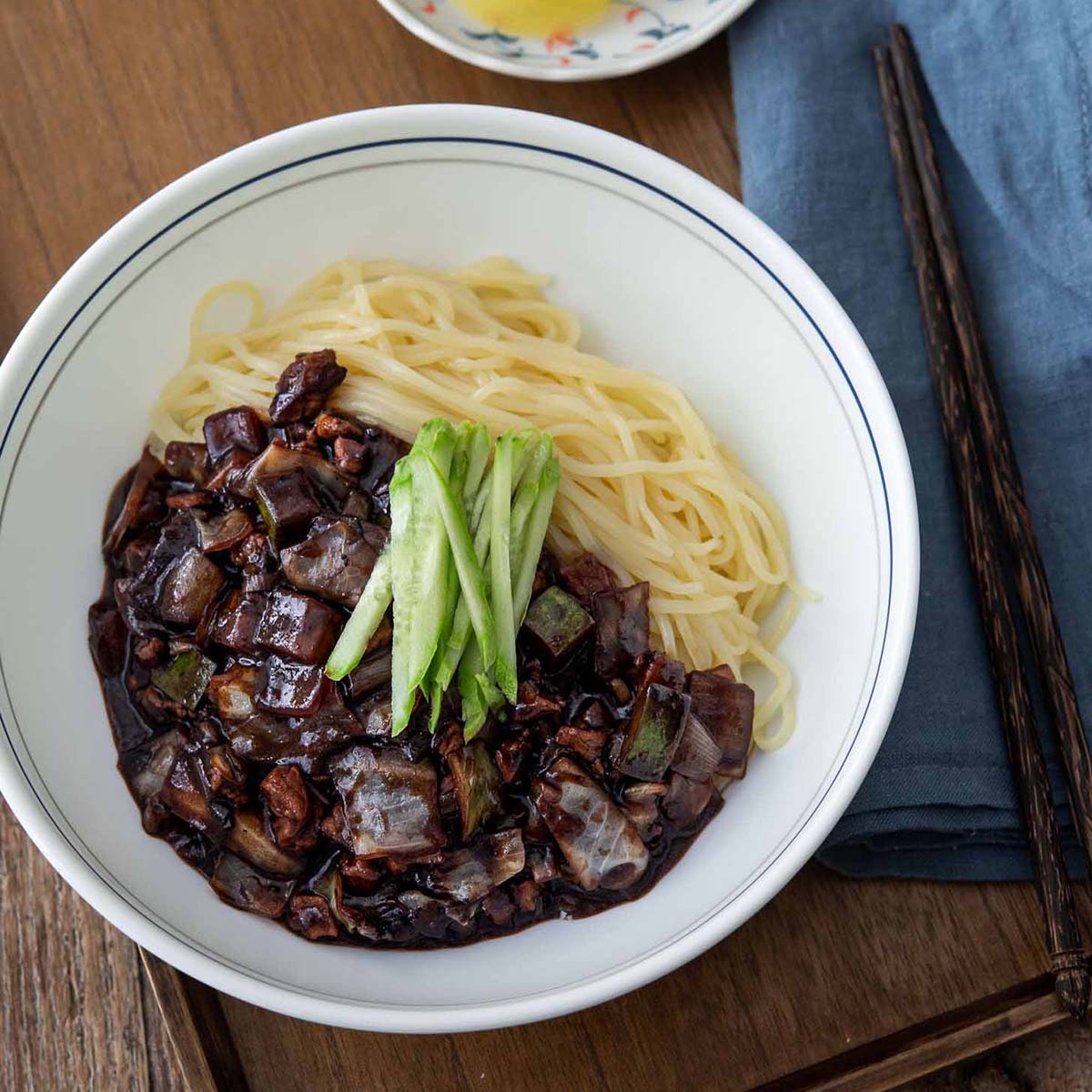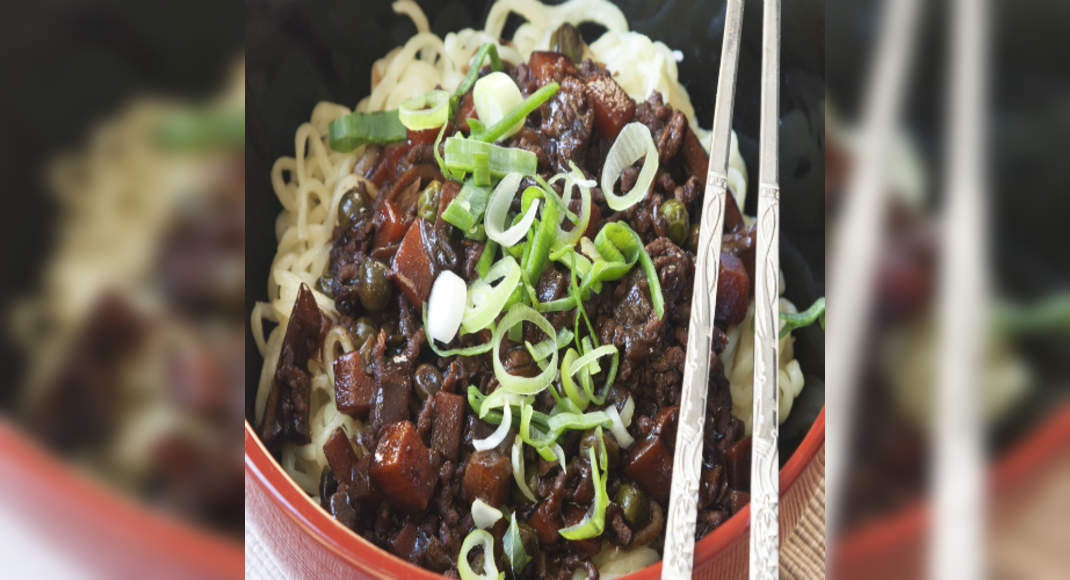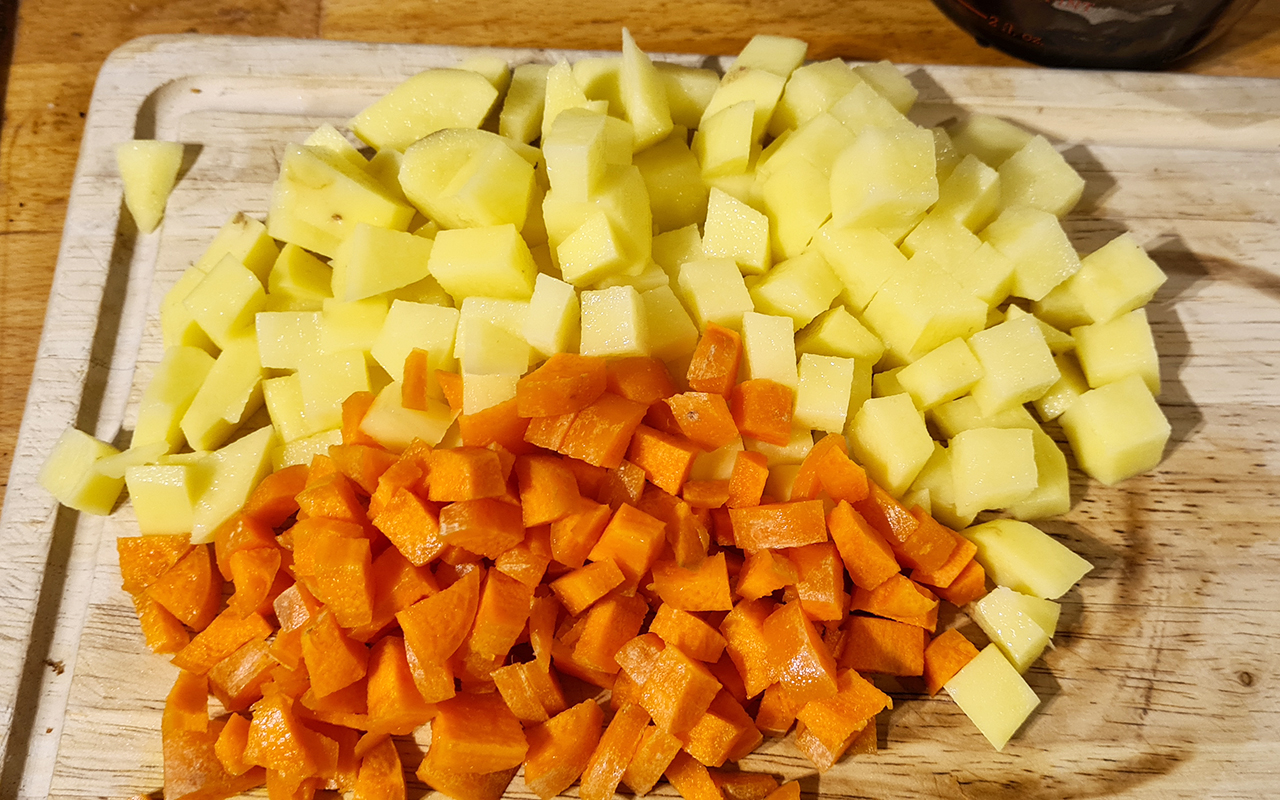Jajangmyeon
자장면, jjajangmyeon, jjajangmyun, 짜장면
Jajangmyeon or jjajangmyeon (짜장면) is a Korean Chinese noodle dish topped with a thick sauce made of chunjang, diced pork, and vegetables. It is a variation of the Chinese dish zhajiangmian; it developed in the late 19th century, during the Joseon period, when Chinese migrant workers from Shandong arrived in Incheon. The Korean variant of the dish uses a darker and sweeter sauce than the Chinese version. Variants of the dish use seafood, or other meats. Jajang or jjajang is borrowed from the Chinese word zhájiàng (炸醬), which means "fried sauce". Myeon (면) means "noodles". The Chinese characters are pronounced jakjang (작장) in Korean, but the noodle dish is called jajangmyeon, not *jakjangmyeon, because its origin is not the Sino-Korean word, but a transliteration of the Chinese pronunciation. As the Chinese pronunciation of zhá sounded like jja (rather than ja) to Korean ears, the dish is known in South Korea as jjajangmyeon, and the vast majority of Korean Chinese restaurants use this spelling.
Source: Wikipedia
Recipes
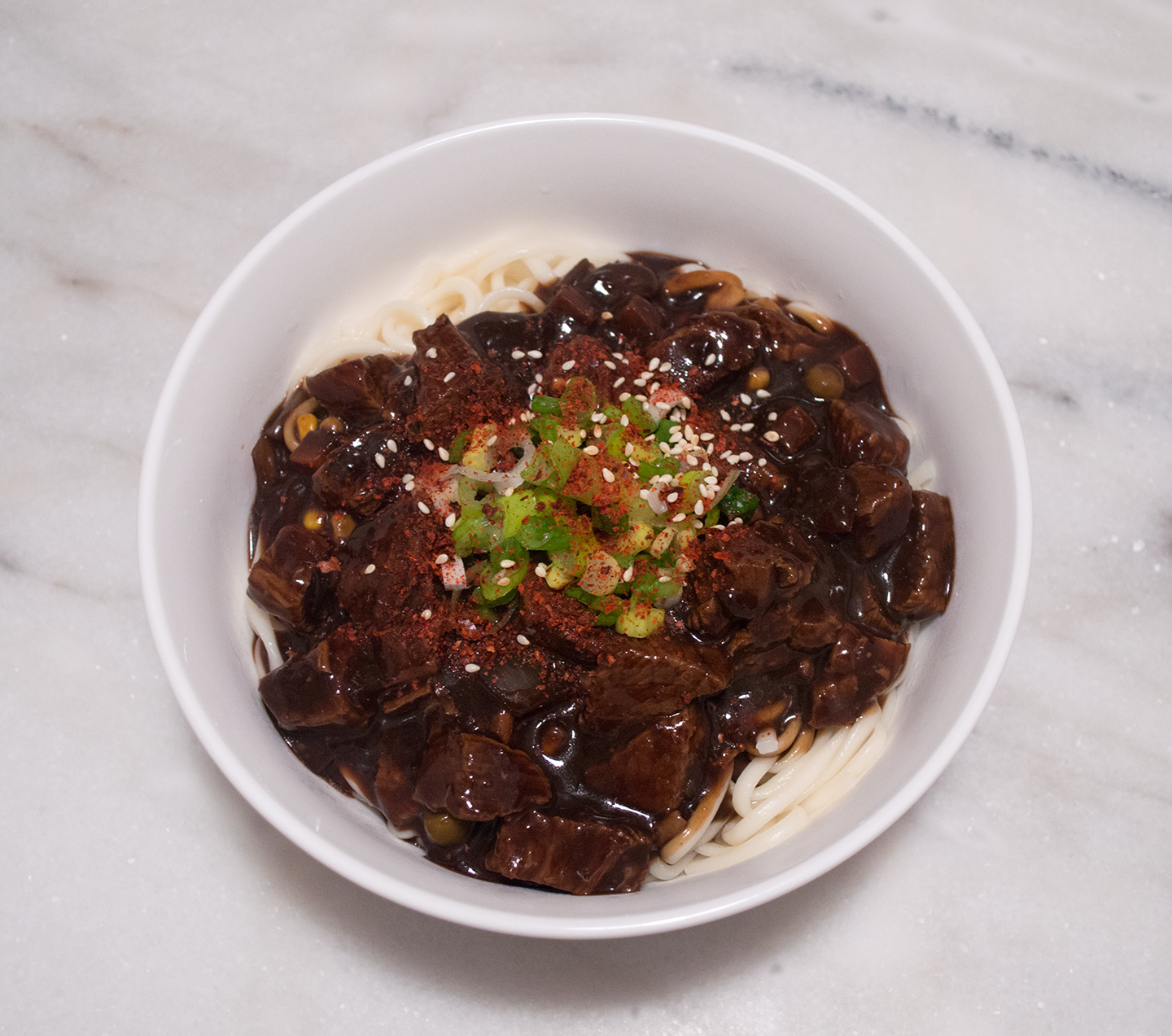
Jajangmyeon (자장면) - Noodles with Black Bean Sauce Recipe - Everybunny Eats

